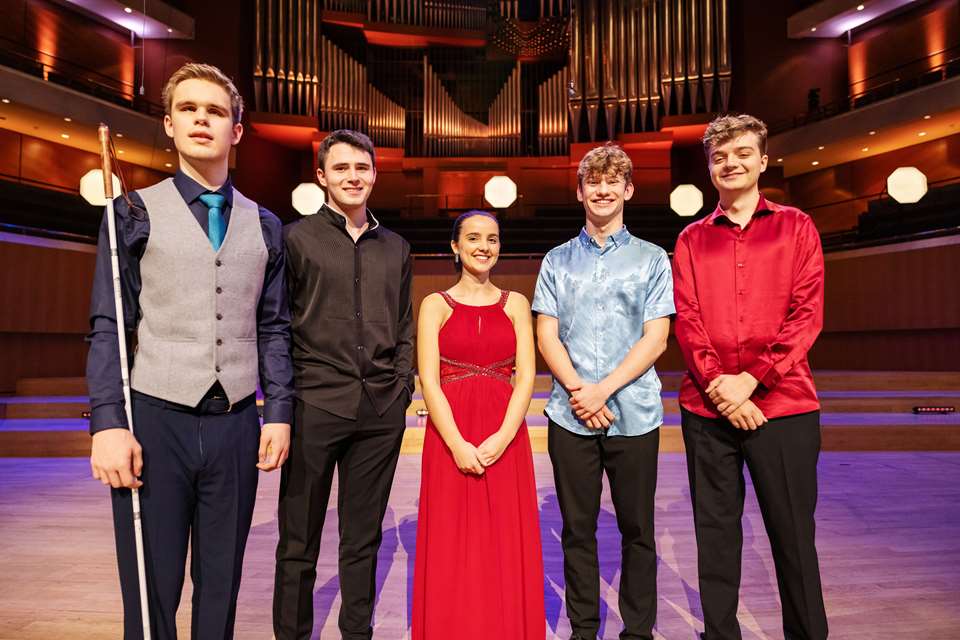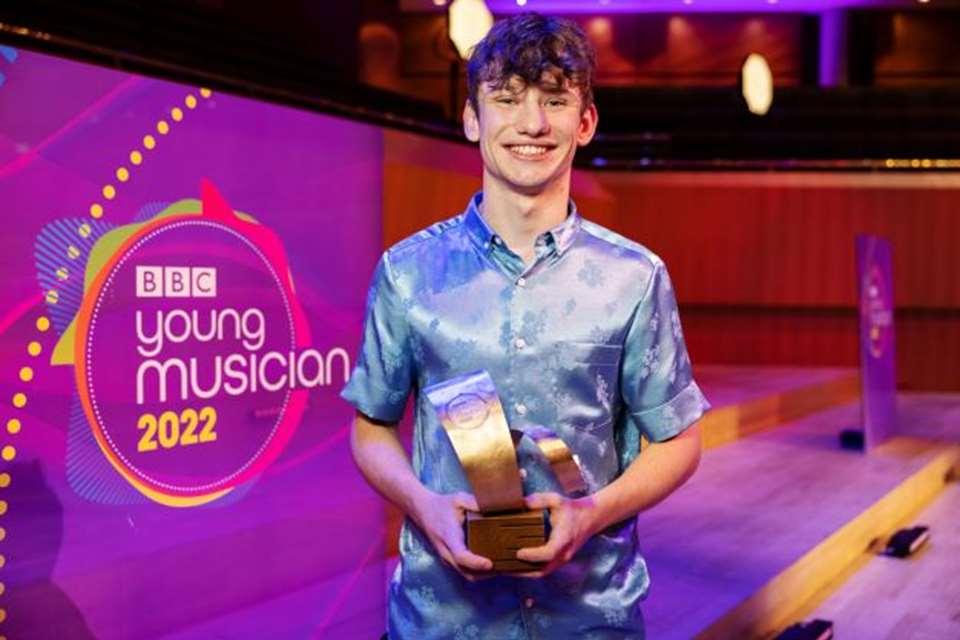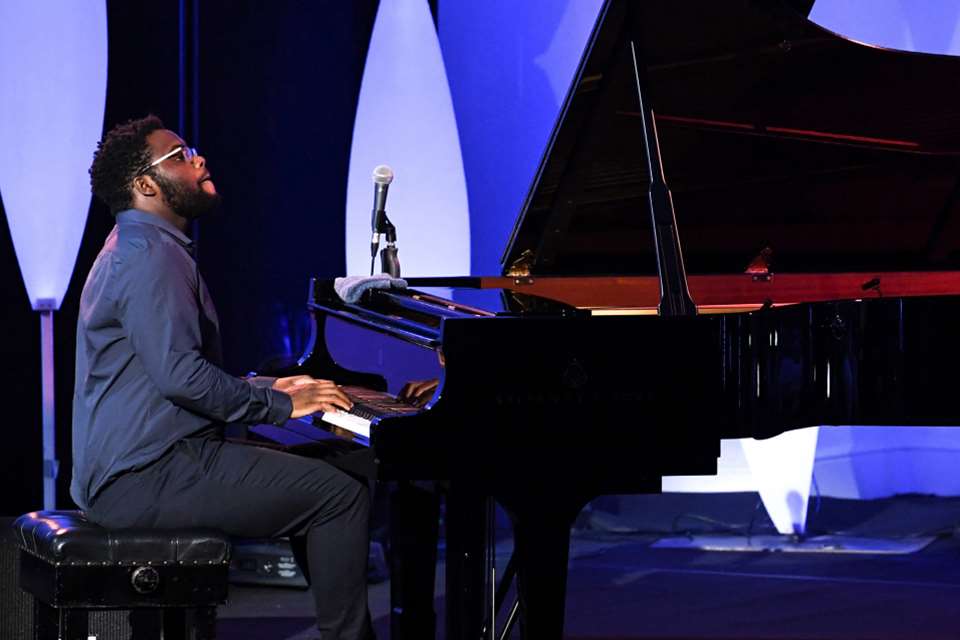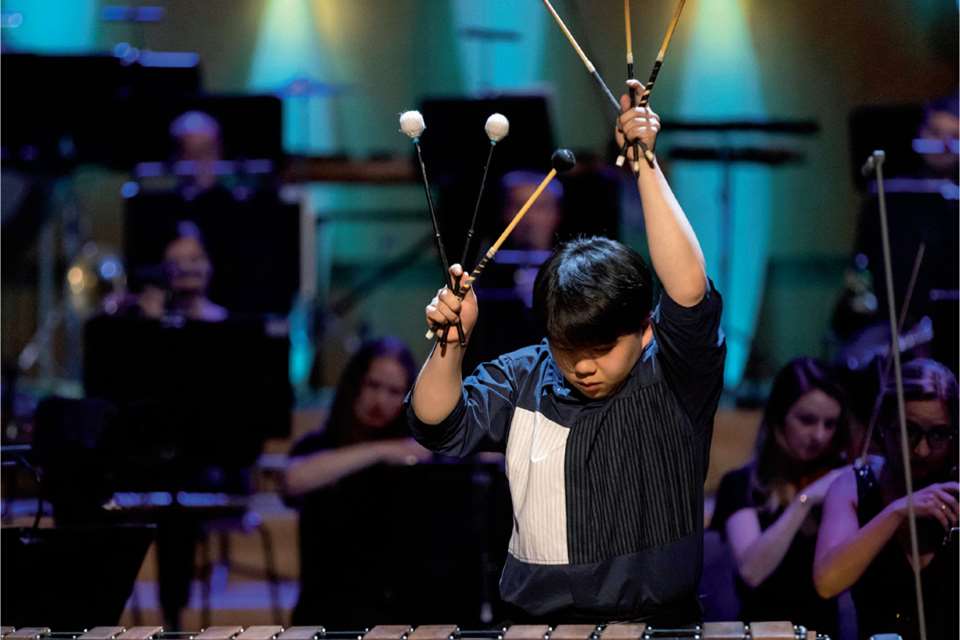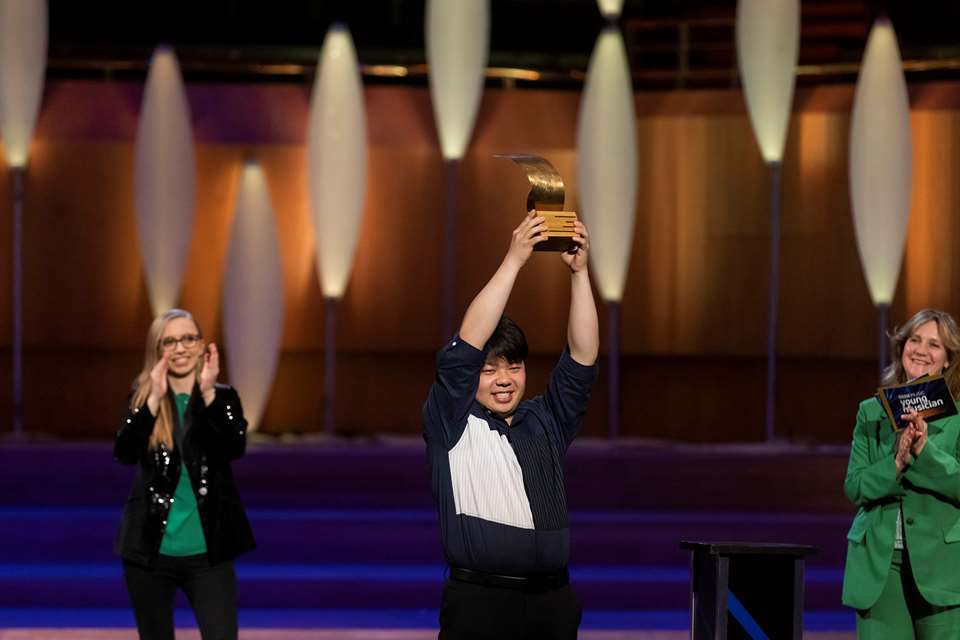Ethan Loch interview: BBC Young Musician finalist on vivid dreams, perfect pitch, and barriers to access
Harriet Richards
Tuesday, November 1, 2022
Eighteen-year-old Ethan Loch from Glasgow moved the judges to tears with his performances at BBC Young Musician 2022. Harriet Richards met the pianist for a chat after the grand final.
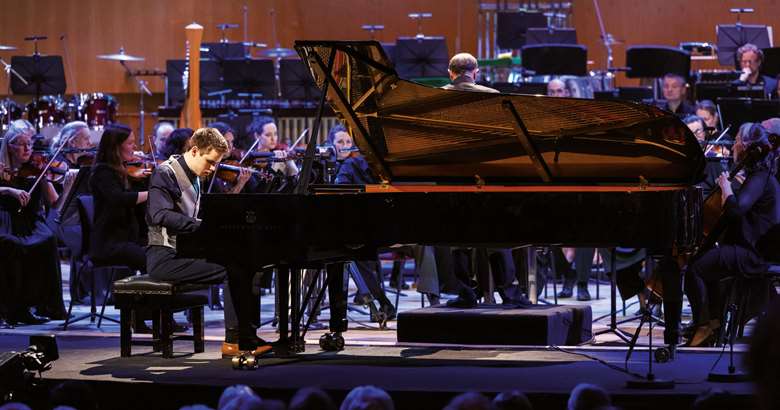
Dan Prince BBC
HR: Congratulations on your keyboard category win and your stunning performance in the grand final! What was the BBC Young Musician experience like for you?
EL: The best way I can describe it is that it was a journey. I had a really interesting experience after the category final – I was practising the concerto and it wasn't going well, as there are so many difficult passages. I thought, how on earth am I going to get this ready? That night, I had a really vivid dream, which felt like it lasted two months. My dreams have always been really vivid, to the point where when I was four, I couldn't tell the difference between reality and dreamland. To cut a long story short, in the dream I was practising the concerto long into the night, doing about 10 hours of technical work a day.
The dream ended on 29 September when I was about to walk out on stage (the person who took me on stage was called Janice, and she was from Yorkshire – I don't know why!). Then I woke up, and when I went to the piano, the piece was exactly how I had left it in the dream – I had fixed every single technical thing. So, over the actual time in real life, I was able to focus on the music. It was completely deluded, but I was so happy because I had fixed every single technical difficulty in my dream.
HR: That is incredible – I've never heard anything like it! What was the grand final like in reality?
EL: It was a whirlwind. In real life it was very different – being on that stage was insane. When I met the conductor, Mark Wigglesworth, and we were being mic'd up, he was so nice, but it was quite stressful because it wasn't a normal interaction. Then, as I played the concerto with the orchestra, I could just hear this incredible combination of vibrations. It was amazing, because I've heard it in recordings, but now I could hear all of the vibratos of the strings combined with the beautiful sweetness of the flute, all creating different emotions. It just reminded me of how unifying music is, and how everyone needs to be together to create it.
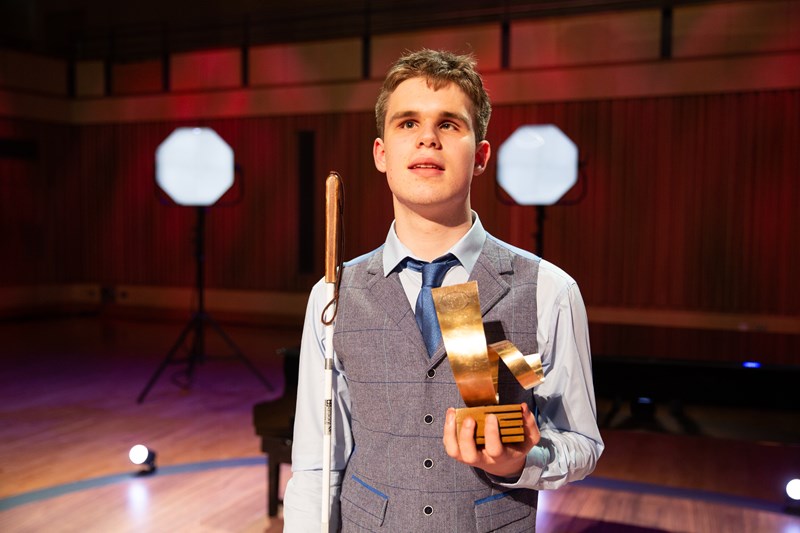
Ethan Loch on winning the Keyboard Final. Image: Dan Prince BBC
HR: Tell me about your first musical experiences as a child.
EL: My very first exposure to the piano was when I was 18 months old. We lived in Canada from when I was one and then left for Scotland when I was almost six, and in Canada, we were storing a piano owned by a close friend. My mum is a classically trained teacher and she wondered if she could get her blind son to play the piano. I was guided to the piano, which was huge – much taller than me. I remember it well – I would stretch up and press these huge keys, and all I would hear were these amazing overtones and harmonics. It felt like a key to the world of sound that I wanted to explore further. At that point, you couldn't get me off the piano because there were so many amazing harmonics, tonal harmonies, pitch ranges and notes. It was an experience that secured by love of piano for life.
HR: I read that you have perfect pitch, not just for musical notes, but in sounds all around you.
EL: Not to cause any discomfort, but I can also hear it in the inflections of voices.
HR: Really?
EL: That was an E flat. It's an interesting party trick! I remember when I went to a music school, people would often be very curious about me. One time, I said to a student, wow, that's a very interesting harmonical voice inflection you've got there. For weeks people were asking me to pitch their harmonics.
HR: And what has your experience of formal music education, including at the Royal Conservatoire of Scotland, been like so far?
EL: It's been a very maze-like experience. I've had to cut corners and navigate curves because there are lots of accessibility issues. There are certain aspects of the course [at RCS] that are difficult to adapt for blindness. So, I've had to stop, analyse the corners, talk to a few maze factory workers (who are the teachers) about these corners, and we've had to go through the maze together. I just hope I can get to the other side and make use of it.
HR: That sounds difficult. So, your first few months at RCS haven't been entirely smooth?
EL: So far, settling in has been a bit challenging, and there have been a few bumps along the way. For example, the music technology class is something that's very much inaccessible. I can use technology, but if you're a blind user, you use the screen reader for iPhones or MacBooks called VoiceOver. There are different commands for VoiceOver, which changes the technology experience, and a teacher has to be experienced in teaching someone with VoiceOver. So, I haven't been able to do that class at all.
HR: Is any progress being made?
EL: I think it's just a matter of people being experienced using VoiceOver. I've also applied for funding to get a new MacBook Pro because, as a blind student, I want to learn Logic Pro, which is one of the most accessible things out there. There are some cool online tutorials about how to use it, but in order for teachers to be able to teach me how to use Logic Pro, they need to know how to use it with VoiceOver. Unfortunately, I also don't have my MacBook Pro yet, because the funding only came in a couple of days ago – they took a long time to reply! But I wouldn't call it a dead-end; I just need to negotiate the maze.
HR: Is the piano learning at RCS going well, at least?
EL: Yes! One of the best parts about the piano learning is that I've been meeting a lot of other people. As a blind person, if there's one thing that's difficult, it's mingling with other people and finding friends. The people I'm most comfortable being friends with are other musicians – not because I only like musicians, but because we have a common interest. Honestly, being in that environment and having conversations with those students has been an amazing experience.
HR: Talk me through your process of learning a piece.
EL: I'd say I do it entirely by ear. I listen to recordings and gauge an interpretation, then learn the notes. I ask my mum sometimes, and she acts as my reader and tells me any details I may have missed from the score.
I'm very much an auditory learner, and I hear sound in my head all the time. When we were talking about mazes, my brain had this ‘image’ of going into a maze, but it wouldn't pick out the physical feeling of it. Rather, it would pick out the sound of the rustling of the hedges.
HR: If you could change one thing about the musical experience of young people, what would it be?
EL: I would probably change the judgement side of classical music. As a young person who's learning classical music, it feels like there's a judgemental atmosphere. I would be sitting in a concert when I was young, and I always remember people commenting on ‘poor technique’. I always think it's more enjoyable if you listen to the music and think about what the player is trying to communicate. That would probably get more people interested in classical music, and give them more opportunities to show their emotions, rather than players just being under a microscope.
HR: Do you have any plans for the future?
EL: I would definitely say that I want to be a composer, because composing is one of my favourite things. I have been composing since I was six, when I wrote a composition about the seasons during the cold, bitter winter of 2010. They were very simple pieces – the first was called ‘Winter Flowers’, the second was ‘Spring Flowers’, and I think it's kind of obvious what the third and fourth were… Ever since then, I've always been thinking about how to merge sounds.
I would also like to record music – I'm a very big Chopin fan. I've learnt all the Chopin scherzos, more than half of the études, and am in the process of learning all the ballades. I would really like to record them. All my learning came entirely from recordings, and it gives me a lot of excitement to know that in the future I might record a piece and other young children will listen and be able to get something out of it. I remember all the pleasure I got from listening to recordings of Vladimir Horowitz, and the emotion of it. It would be indescribable to know that you were the person inspiring that emotion.
When approached by MT for comment on the accessibility issues raised here, a spokesperson for the Royal Conservatoire of Scotland said: ‘We're committed to promoting equality, diversity and inclusion and work closely with students who require additional support to ensure that effective provision is made to assist their studies.’
Highlights from the category finals and the full grand final of BBC Young Musician 2022 are available to watch on iPlayer. www.ethandavidloch.com


